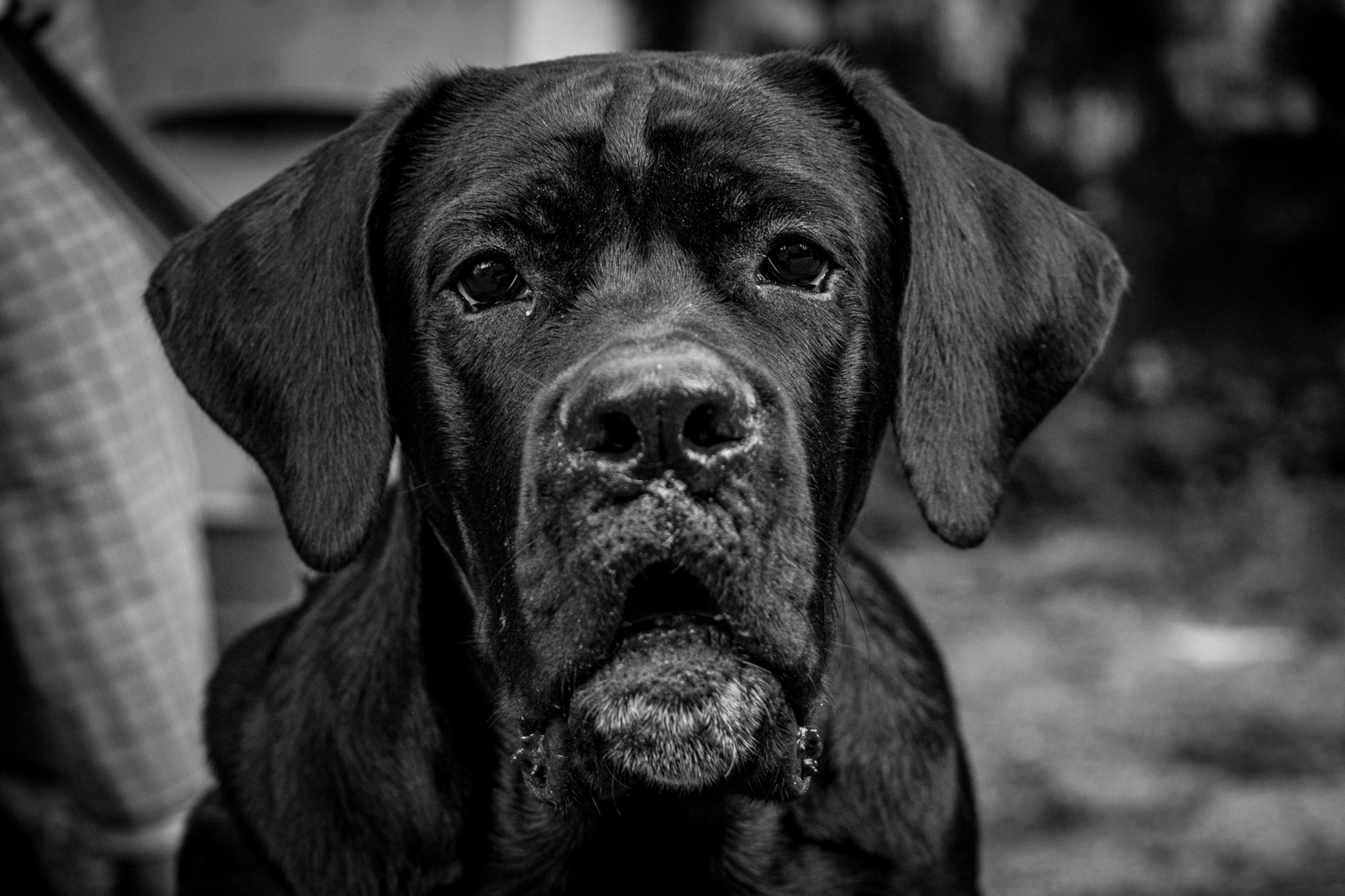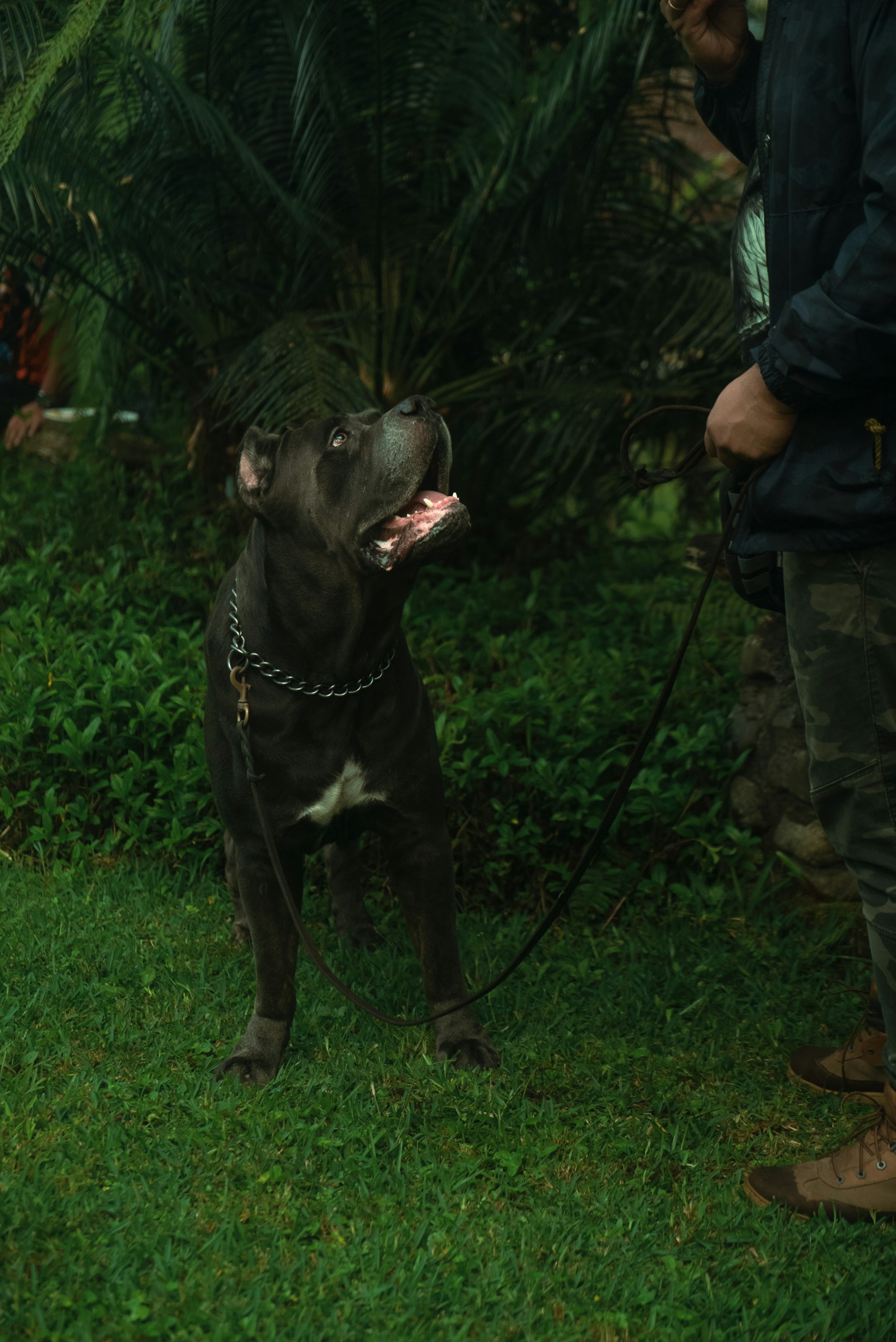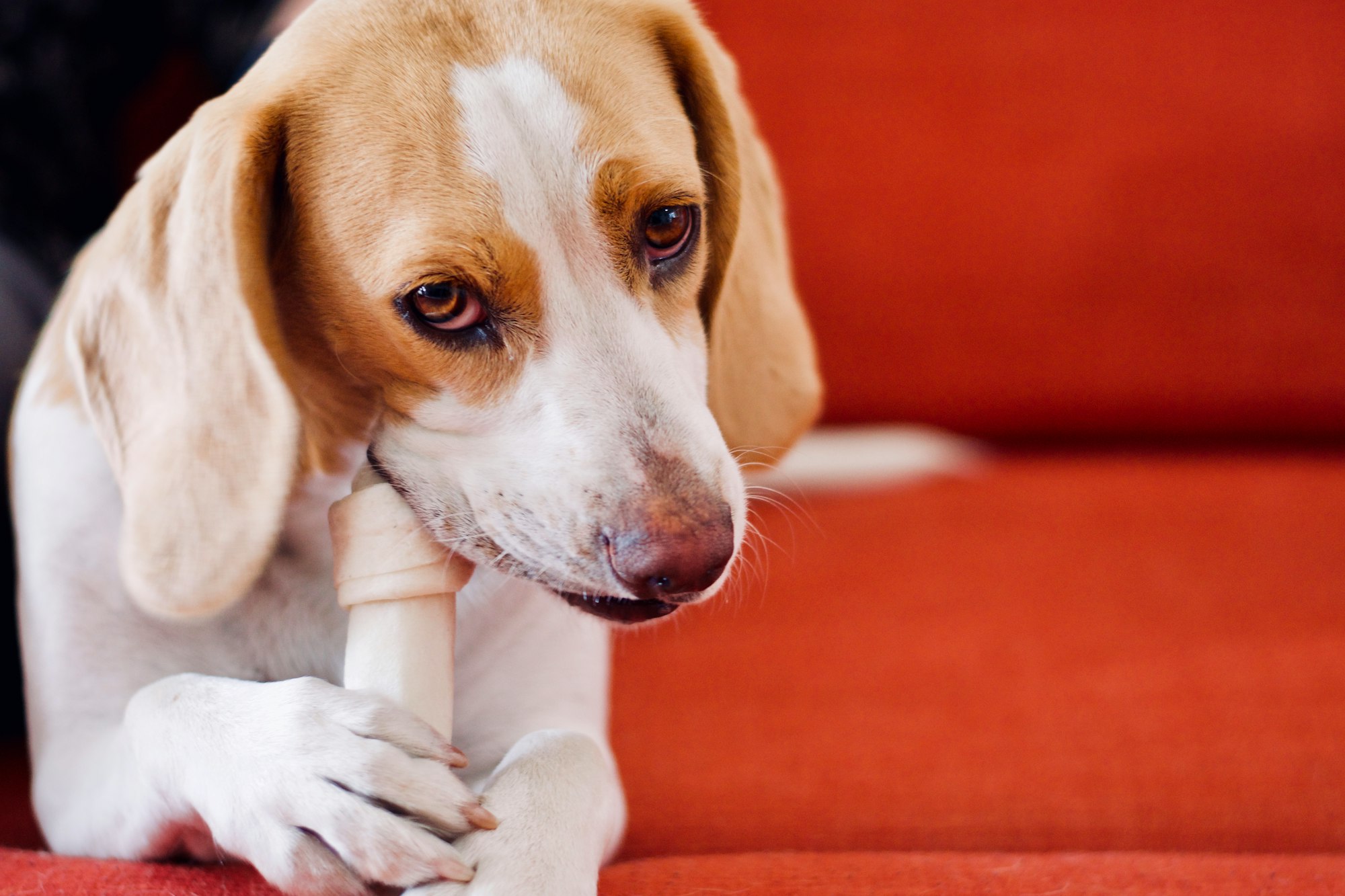Welcome to our comprehensive guide on Cane Corso ears. If you're a proud owner or considering bringing home a Cane Corso, it's essential to understand how to care for their ears properly. The Cane Corso is a magnificent breed known for its loyalty, strength, and distinctive appearance. One notable feature is their ears, which can add to their overall charm and personality. Here, we will explore everything you need to know about Cane Corso ears, from common ear-related issues to proper cleaning and maintenance. Let's dive in!

Cane Corso Ears: An Intriguing Feature
Cane Corso ears are an integral part of their overall appearance and serve several purposes. The ears are medium-sized and set high on the skull, giving the dog a vigilant expression. They are triangular, with a slightly rounded tip, and naturally drop forward. While they are typically left in their natural state, some owners opt for ear cropping, a surgical procedure that alters the shape of the ears. It's important to note that ear cropping is a personal choice and should be discussed with a veterinarian.

Ear Cropping: History and Controversy
Ear cropping is a practice that involves surgically altering a dog's ears for cosmetic purposes. It has a historical background, dating back to ancient civilizations, where good family dogs were cropped to enhance their performance in various tasks. However, in modern times, ear cropping has become a subject of controversy due to ethical concerns. Many countries have banned the practice, and it is largely discouraged in the United States.
If you decide to crop your Cane Corso's ears, it is crucial to understand the procedure and the associated considerations. Ear cropping should only be performed by a licensed and experienced veterinarian. The process involves surgically removing a portion of the ear and taping it to mold the desired shape. It is essential to follow the veterinarian's instructions carefully and provide proper aftercare to ensure the best possible outcome for your happy dog.
Ear Care for Uncropped Cane Corsos
For Cane Corsos with natural, uncropped ears, proper ear care is essential to maintain their health and hygiene. Regular cleaning is crucial to prevent wax build-up, debris accumulation, and potential infections. Use a veterinarian-approved ear-cleaning solution and gently wipe the outer ear area with a clean cloth or cotton ball. Avoid inserting anything into the ear canal, as it can cause damage.
Common Ear-Related Issues
Cane Corsos can experience certain ear-related issues that require attention and care. Being aware of these problems can help you identify them early and seek appropriate treatment. Here are some common ear-related issues in Cane Corso:
1. Ear Infections: Causes and Symptoms
Cane Corsos are prone to ear infections, which can cause discomfort and pain if left untreated. These infections are often caused by yeast or bacteria and can occur due to various factors such as allergies, moisture buildup, or foreign objects in the ear. Common symptoms of an ear infection in Cane Corsos include:
- Frequent shaking or tilting of the head
- Scratching or pawing at the ears
- Foul odor emanating from the ears
- Redness, swelling, or discharge from the ear canal
2. Hematoma: Understanding the Condition
A hematoma is a condition characterized by a collection of blood outside the blood vessels, usually between the skin and the cartilage of the ear. It can occur as a result of trauma, excessive scratching, or head shaking. Symptoms of a hematoma in Cane Corso's ears include:
- Swelling and a fluid-filled lump on the ear flap
- Sensitivity and pain when the ear is touched
- Thickened or hardened ear flap due to scar tissue formation
If you notice any of these ear-related issues in your Cane Corso, it's crucial to seek veterinary assistance promptly to ensure their well-being and comfort. Proper diagnosis and treatment can alleviate discomfort and prevent more severe complications.
Proper Cleaning and Maintenance
Proper cleaning and maintenance are essential to keep your Cane Corso's ears healthy and prevent ear-related issues. Follow these guidelines to ensure optimal ear care:
1. Regular Inspection: Take the time to inspect your Cane Corso's ears weekly. Look for any signs of redness, swelling, discharge, or foul odor. Early detection of potential issues can help prevent them from escalating.
2. Gentle Cleaning: Use a veterinarian-recommended ear cleaning solution and soft cotton balls to clean your Cane Corso's ears. Gently wipe the visible parts of the ear, being careful not to insert anything into the ear canal. Avoid using regular cotton swabs as they can push debris deeper and potentially cause injury.
3. Drying: After bathing your Cane Corso or if their ears become wet, make sure to dry them thoroughly. Moisture trapped in the ears can create an environment suitable for bacterial or yeast growth. Use a clean, dry towel or a gentle stream of warm air from a hairdryer (on the lowest setting) to dry the ears.
4. Hair Trimming: If your Cane Corso has excessive hair growth in and around the ears, it's advisable to trim it. Excess hair can obstruct airflow and trap moisture, increasing the risk of infections. Consult a professional groomer or your veterinarian for guidance on proper hair trimming techniques.
5. Avoid Irritants: Keep your Cane Corso's ears away from irritants such as chemicals, harsh shampoos, or excessive dust. These irritants can cause inflammation and discomfort. When using any products near the ears, ensure they are specifically designed for canine use and gentle on the skin.
Remember, if you notice any concerning changes in your Cane Corso's ears or suspect an infection, consult your veterinarian for a thorough examination and appropriate treatment. By practicing regular cleaning and maintenance, you can help ensure your Cane Corso's ears remain healthy and comfortable.
Preventive Measures for Ear Health
Maintaining the ear health of your beloved Cane Corso is crucial for their overall well-being. By taking preventive measures, you can minimize the risk of ear problems and ensure your furry friend enjoys healthy ears throughout their life. Here are some essential steps you can take:
Regular Cleaning
Routine ear cleaning is essential to remove dirt, debris, and excess wax that can accumulate in your Cane Corso ears. Use a veterinarian-recommended ear-cleaning solution and gently wipe the outer part of the ear with a clean cloth or cotton ball. Avoid inserting anything deep into the ear canal, as it can damage the delicate structures inside.
Proper Drying
After bathing or swimming, make sure to thoroughly dry your Cane Corso's ears. Moisture trapped in the ear can create a favorable environment for bacterial or yeast infections. Use a soft towel or a low-heat blow dryer on the cool setting to dry the ears gently.
Regular Inspections
Frequently check your Cane Corso's ears for any signs of redness, swelling, discharge, or foul odor. These can be indications of an underlying ear problem. If you notice anything unusual, consult with your veterinarian for a proper diagnosis and treatment.
Avoid Irritants
Minimize exposure to potential irritants that can affect your Cane Corso's ears. These may include harsh chemicals, strong cleaning agents, or allergens. Keep your dog's environment clean and free from substances that could cause irritation or inflammation.
Maintain Proper Grooming
Regular grooming sessions are not only beneficial for your Cane Corso's overall hygiene but also contribute to ear health. Trim the hair around the ears to prevent it from obstructing airflow and trapping moisture. Excess hair can also contribute to the buildup of debris and increase the risk of infections.
Healthy Diet
Proper nutrition plays a vital role in maintaining your Cane Corso's overall health, including their ears. Provide a balanced and nutritious diet that meets their specific dietary needs. A healthy immune system can help ward off infections and support optimal ear health.
Avoid Excessive Moisture
Excessive moisture in your Cane Corso's ears can create a favorable environment for bacteria and yeast to thrive. During bath time, take care to prevent water from entering the ear canal. Consider using cotton balls to gently block the ears while bathing.
Regular Veterinary Check-ups
Schedule regular visits and easing fear at the vet for comprehensive check-ups, including ear examinations. A professional examination can detect early signs of ear problems and enable timely intervention and treatment if necessary.
By implementing these preventive measures, you can significantly reduce the risk of ear issues in your Cane Corso. Remember, a proactive approach to ear health is key to ensuring your furry companion enjoys a lifetime of healthy and happy ears.
Understanding Ear Communication and Building a Strong Bond
Cane Corsos express themselves through more than just body language; their ears also play a significant role in conveying their feelings and intentions. We'll delve into the various ear postures and movements and what these signals mean regarding their emotional state and intentions.
Caring for the ears of your Cane Corso—or a Cane Corso Husky Mix—extends beyond mere physical wellness. It also serves as a bonding activity that can deepen your connection with your four-legged companion. We'll offer tips on making ear care a mutually beneficial experience for you both.

Are Cane Corso Ears Sensitive?
The sensitivity of Cane Corso's ears is a common concern among owners. We'll delve into the topic and provide you with a better understanding of how sensitive their ears truly are.
When to Consult a Veterinarian for Ear Issues
While regular care can prevent many ear problems, there may be instances when professional help is required. We'll guide you on when it's appropriate to seek veterinary assistance for your Cane Corso's ear issues.
Conclusion
Cane Corso ears are a fascinating feature that adds to the breed's distinctive appearance. Understanding how to care for and maintain their ears is essential for keeping them healthy and free from infections. Regular cleaning, inspection, and prompt veterinary care can go a long way in ensuring your Cane Corso's ears remain in optimal condition. By following the guidelines provided in this article, you can contribute to your beloved Cane Corso's overall well-being and happiness.
FAQs about Cane Corso Ears
Q1: Should I crop my Cane Corso's ears?
A1: Ear cropping is a personal choice and should be discussed with a veterinarian. It is important to note that ear cropping is a surgical procedure and should only be performed by a qualified professional.
Q2: How often should I clean my Cane Corso's ears?
A2: It is recommended to clean your Cane Corso's ears once a week or as advised by your veterinarian. Regular cleaning helps remove dirt, wax, and debris, reducing the risk of infection.
Q3: Can I use regular cotton swabs to clean my Cane Corso's ears?
A3: No, you should avoid using regular cotton swabs as they can push debris further into the ear canal, potentially causing injury. Always use cotton balls or vet-approved ear-cleaning products.
Q4: What should I do if my Cane Corso shows signs of an ear infection?
A4: If you suspect your Cane Corso has an ear infection, it is crucial to seek veterinary care. A veterinarian will be able to diagnose the infection and provide appropriate treatment, which may include medication or ear drops.
Q5: Are Cane Corsos more prone to ear infections than other breeds?
A5: While Cane Corsos are not inherently more prone to ear infections, their drooping ears and skin folds can create an environment conducive to bacterial or yeast overgrowth. Regular ear cleaning and maintenance can help prevent infections.
Q6: Can I prevent hematoma in my Cane Corso's ears?
A6: While hematoma can occur due to various factors, such as trauma or excessive scratching, prompt treatment of underlying issues, such as ear infections, can help reduce the risk of hematoma formation.
Q7: Can I crop my Cane Corso's ears at home?
A7: It is strongly recommended to have ear cropping performed by a professional veterinarian to ensure the procedure is done safely and with the least amount of discomfort for your dog.
Q8: Is ear cropping necessary for show dogs?
A8: While ear cropping was once common for show dogs, many breed standards have changed to allow natural ears. Check the specific show rules and guidelines to determine the requirements for Cane Corsos.
Q9: What are the risks of ear cropping?
A9: Ear cropping is a surgical procedure that carries inherent risks, such as bleeding, infection, and adverse reactions to anesthesia. Consult with a veterinarian to understand the potential risks and benefits.
Q10: How can I tell if my Cane Corso has an ear infection?
A10: Signs of an ear infection in Cane Corsos include excessive scratching, head shaking, redness, swelling, foul odor, and discharge from the ear. If you suspect an infection, consult your veterinarian.

